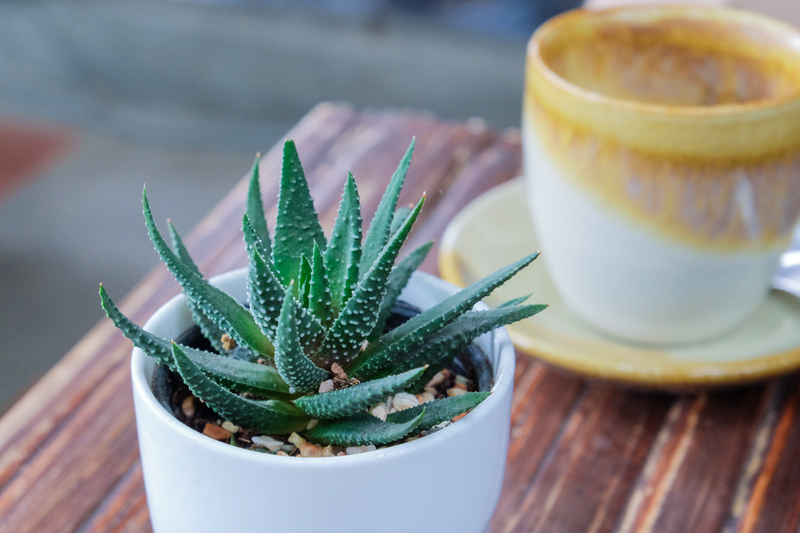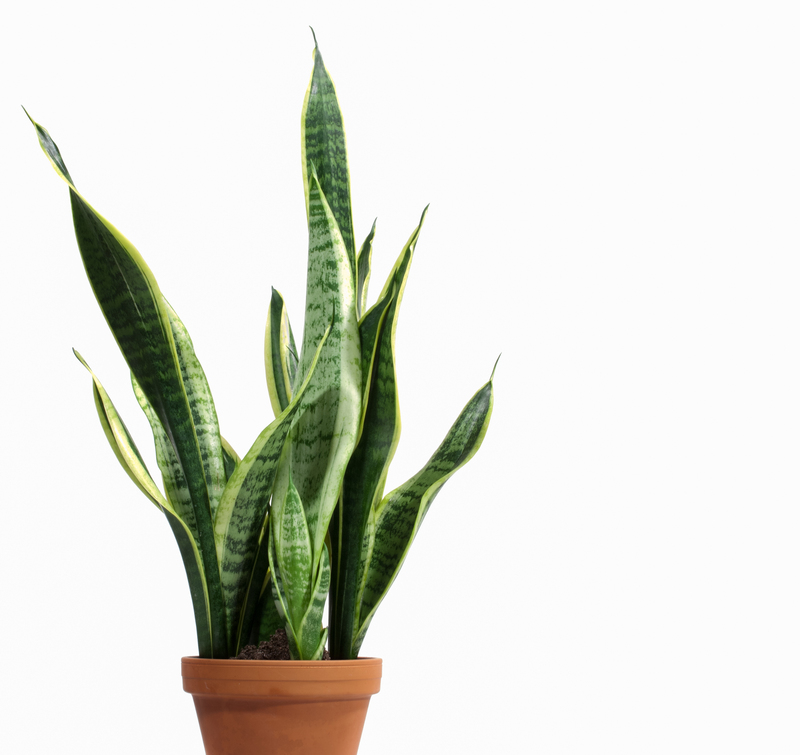From Organic Waste to Vibrant Soil Enhancer
Posted on 07/09/2025
From Organic Waste to Vibrant Soil Enhancer: Transforming Trash into Treasure
Have you ever wondered what happens to your kitchen scraps, fallen leaves, and garden clippings? While much of this so-called "waste" is often tossed into the trash, it holds the potential to become a powerful soil enhancer. Understanding the journey from organic waste to vibrant soil enhancer not only benefits your garden but also helps our planet by reducing landfill waste and enriching the earth. In this comprehensive guide, we'll explore the science, methods, and benefits behind transforming organic matter into nutrient-rich compost -- the ultimate growth booster for your plants.

Understanding Organic Waste: What Is It?
Organic waste refers to any material derived from living organisms that is biodegradable. Examples include:
- Fruit and vegetable peels
- Coffee grounds and tea bags
- Eggshells
- Grass clippings and leaves
- Paper towels and napkins (unbleached)
- Yard trimmings
Unfortunately, a significant portion of organic waste ends up buried in landfills, where its anaerobic decomposition creates methane gas--a potent greenhouse gas. However, composting organic waste at home or in community projects can turn a potential environmental problem into a gardening solution.
The Path: How Organic Waste Becomes a Vibrant Soil Enhancer
The transformation begins the moment organic matter is diverted from the waste stream. Here's how you can harness this process:
Step 1: Waste Separation
- Set up a separate bin or pail in your kitchen to collect fruit peels, egg shells, coffee grounds, and other permissible organic kitchen waste.
- Designate a space outdoors for collecting yard trimmings, fallen leaves, and grass clippings.
Sorting your waste ensures that you keep out non-biodegradable contaminants, such as plastics and metals, which can disrupt the composting process.
Step 2: The Composting Process
Composting is the biological decomposition of organic materials under controlled conditions. There are several composting methods, including:
- Traditional composting: Using a simple outdoor pile or bin to decompose organic matter over several months.
- Vermicomposting: Employing special worms (like red wigglers) to break down kitchen scraps quickly.
- Bokashi fermentation: An anaerobic, microbe-driven method that "pickles" your waste before it's added to soil or a traditional compost pile.
The essential components for efficient decomposition include:
- Greens: Nitrogen-rich materials, such as food scraps and fresh plant cuttings
- Browns: Carbon-rich sources, such as dried leaves, cardboard, and straw
- Water: Moisture is vital for microbial activity, but excess can lead to odors and slow down decomposition.
- Oxygen: Turning or aerating your compost helps speed up the process and prevents foul smells.
Step 3: Maturation and Harvesting
After weeks or months, your pile will gradually turn into a dark, crumbly, and earthy-smelling substance known as finished compost -- a potent soil enhancer. This compost can be sifted and applied directly to your garden beds, potted plants, or even lawns.
The Science Behind Compost: Why It Works
At its core, composting is powered by a complex community of microorganisms -- bacteria, fungi, actinomycetes, insects, and worms. As they break down organic matter, they generate heat and release plant nutrients in forms that are easily accessible by roots. Compost acts as a vibrant soil amendment in several ways:
- Enhancing soil structure, which improves water retention and drainage
- Boosting populations of beneficial soil organisms
- Supplying slow-release nutrients such as nitrogen, phosphorus, and potassium
- Balancing soil pH naturally
- Suppressing certain plant diseases and pests
Benefits of Using Organic Matter as a Soil Enhancer
Adopting a practice of turning kitchen and yard waste into garden gold pays off in many ways:
- Environmental Benefits: Reduces landfill waste, cuts greenhouse gas emissions, and recycles nutrients back into the earth.
- Economic Benefits: Saves money on store-bought fertilizers, bagged soil, and reduces water usage due to improved soil retention.
- Plant Health: Results in stronger, more resilient plants with greater resistance to stress, disease, and drought.
- Community Impact: Large-scale composting projects can unite neighborhoods and support local food systems.
From Organic Waste to Vibrant Soil Enhancer: A Step-by-Step Guide
1. Choose the Right Composting Method
Consider your available space, climate, and type of organic waste:
- Outdoor compost bin or pile: Ideal if you have a backyard and lots of yard waste.
- Tumbling composter: Great for faster results and keeping pests out.
- Worm bin/vermicomposting: Perfect for apartment dwellers or those with mostly kitchen scraps.
- Bokashi system: Effective for handling meat, dairy, and cooked foods that don't go in a standard compost.
2. Layer the Materials
Alternate "green" (wet, nitrogen-rich) and "brown" (dry, carbon-rich) materials:
- Start with a layer of twigs or straw to aid drainage.
- Add food scraps and garden waste (greens).
- Top with shredded paper, dry leaves, and cardboard (browns).
- Repeat the layers as you add more waste.
Aim for a ratio of about 2:1 browns to greens for the best results.
3. Maintain the Pile
- Keep the pile moist, like a wrung-out sponge.
- Turn the pile every 1-2 weeks to provide oxygen and mix materials.
- Monitor temperature: Active piles heat up --a sure sign of microbial activity.
- Troubleshoot issues: bad odor? Add more browns and turn the pile; too dry? Add water and greens.
4. Harvest and Use Your Soil Enhancer
After a few months, your compost should be dark, crumbly, and smell fresh--like forest soil.
- Spread compost around the base of plants, mix into garden beds, or incorporate into potting mixes.
- Top-dress lawns or trees for sustained nutrient release.
Your once-discarded organic matter is now a vivid, nutrient-rich soil amendment!
Common Mistakes When Composting Organic Waste
Avoid these frequent pitfalls to ensure your organic waste transforms into healthy soil booster:
- Too much of one type of material: An overload of greens or browns slows decomposition.
- Including non-compostable items: Meat, dairy, oily foods, and synthetic materials belong in the trash or specialized systems (like Bokashi).
- Neglecting moisture and oxygen: Compost piles require both for microbial activity.
- Poor location: Shaded, poorly drained locations can slow or stop composting. Choose a level, well-ventilated area.
Innovations in Composting: Scaling Up Sustainability
The concept of turning organic waste into a vibrant soil enhancer is not new, but technology is helping scale up for cities, farms, and businesses. Modern advancements include:
- Automated in-vessel composters that quickly process food waste onsite in schools, restaurants, and offices.
- Community composting hubs where neighbors share resources and knowledge.
- Agricultural partnerships to recycle food processing waste into large-scale compost for fields.
- Digital tools and apps to track waste, measure impact, and educate users.
These initiatives help close the loop, whereby yesterday's waste becomes tomorrow's healthy harvests.
Boosting Your Garden with Homemade Compost
Using homemade compost made from organic waste offers incomparable benefits for your flowers, vegetables, and trees. Here's what happens when you add compost to your soil:
- Increases soil fertility: Compost provides a wide array of essential macro- and micronutrients.
- Improves soil texture: Better tilth means roots grow deeper and stronger.
- Boosts water retention: Especially beneficial in sandy soils and drought-prone areas.
- Attracts beneficial organisms: Earthworms, microbes, and insects thrive in compost-rich environments.
- Reduces need for chemical fertilizers: Natural nutrients from compost help limit chemical input.
Sustainable Living: Beyond the Garden
Turning organic kitchen waste into soil enhancer is part of a broader movement towards sustainable living. By reducing landfill contributions, saving water, and supporting healthy soils, every home composter plays a role in a healthier, more sustainable food system. Communities that embrace composting see less waste, richer urban gardens, and greater awareness about where our food comes from and where our waste goes.

Getting Started: Tips for Composting Success
- Encourage participation: The more household members involved, the greater the impact.
- Keep it convenient: Place food scrap containers in easy-to-access locations.
- Educate yourself: Many local gardening groups offer free workshops on composting best practices.
- Experiment: Find the method that works for your household and climate.
Conclusion: Closing the Organic Loop
Every banana peel, leaf pile, and coffee ground has the potential to become a vibrant soil enhancer. By harnessing the natural process of composting, we can convert organic waste into a resource that nourishes our gardens, landscapes, and farms. The benefits ripple outward -- from healthier soil and robust plants to cleaner communities and a cooler, greener planet. Whether you're tending a small windowsill herb garden or stewarding a community plot, embracing this cycle ensures that nothing in nature is wasted -- only transformed.
Ready to turn your organic waste into nutrient-rich soil?
Start composting today, and watch both your garden and your conscience thrive!
Latest Posts
How Gardening Innovations Can Mitigate Climate Change Impact
Weather-Resilient Gardens: Protecting Your Plants and Crops
Unleash the Potential of Your Garden with Creative Seating Tips

